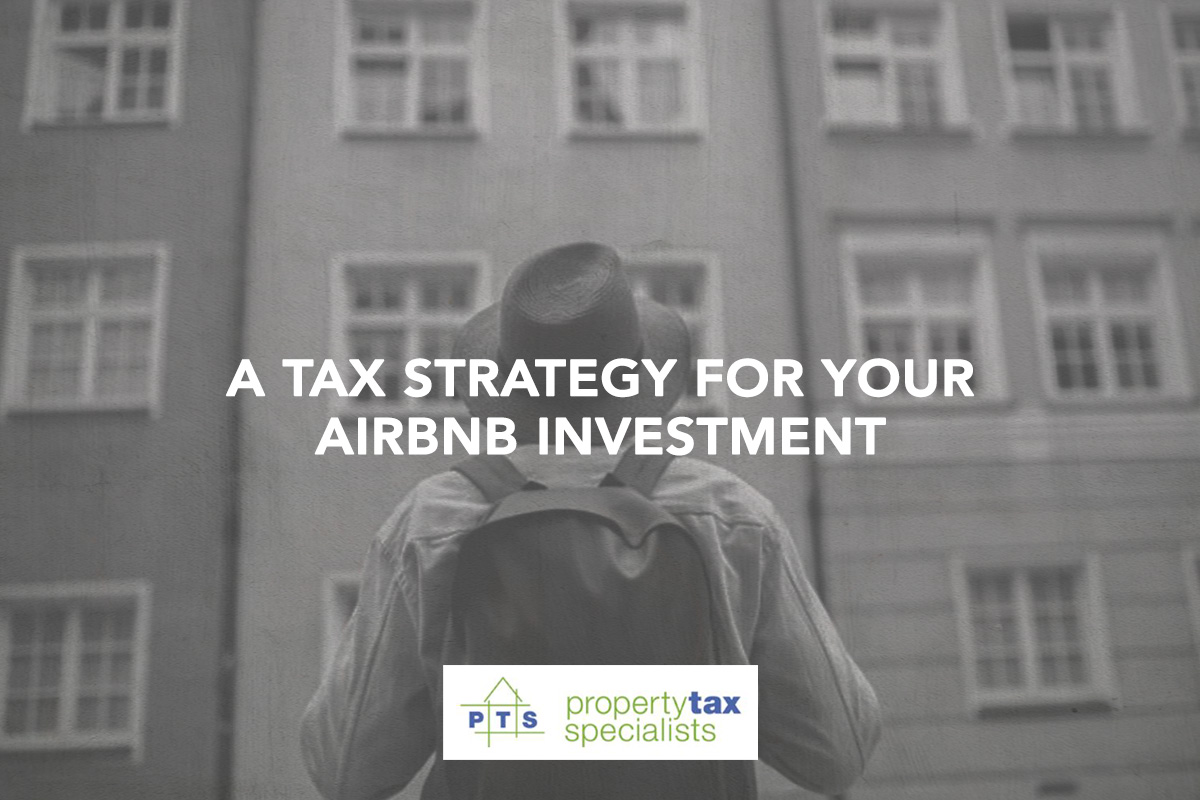A Tax Strategy for Your Airbnb Investment
The popularity of Airbnb has skyrocketed in recent years as travellers increasingly look for unique, affordable and short-term accommodation. For savvy investors, this may present an opportunity to capitalise on the trend by purchasing Airbnb properties.
While investing in the right Airbnb property can help you tap into the demand, you need to have an effective tax strategy in place to maximise the return on your investment. One of the key benefits of investing in property in Australia is that the government offers several tax incentives that could make a significant difference to your bottom line.
If you’re not taking advantage of these tax incentives, then you could be paying more tax than you need to.
So, here’s what you need to consider when formulating a tax strategy for your Airbnb investment.
What You Need to Know About Income Tax and Airbnb Tax Deductions
Rental income forms part of your assessable income for tax purposes, so you will need to declare it when you lodge your tax return with the Australian Tax Office (ATO). You can, however, claim deductions for expenses incurred on the property, so you may be able to offset some of the tax liability.
Tax-deductible expenses include things like mortgage interest, repairs and maintenance costs, listing service fees, and, among other things, insurance premiums. You can access the list of major property tax deductions you can claim on our website.
You should note, though, that if you decide to rent out only a part of the property that you live in, you’ll need to apportion the deductions you can claim and limit your claim to the expenses you incur in renting out that specific room.
To make things easier to navigate in this scenario (i.e. where you rent out a portion of your property), the ATO has divided the tax deductions you can claim into three categories:
- Expenses associated directly with the rental area: this would include items such as depreciation on the furniture and equipment used in the room, Airbnb commissions and costs for advertising the property. Investors can deduct these expenses in full.
- Expenses associated with the rental area and the private area that need to be apportioned: this would include expenses that you incur privately and as a landlord. For example, your Airbnb may need to share a bathroom with you. Or they may have access to the outdoor entertainment area and a swimming pool. The ATO allows you to claim a deduction for these expenses to the extent that they relate to the Airbnb use.
- Expenses associated with private areas that only the host can access: this would include expenses that relate to the portions of the property that you and your family use. Like other owner occupiers, you can’t claim a tax deduction for these expenses because you’re not generating any income from this portion of the property.
How Does Capital Gains Tax Apply to the Sale of Your Airbnb?
When you sell an asset for more than you paid for it, you’re said to have made a capital gain. If the asset is something you own for personal use – like your home – any capital gain you make is tax-free thanks to the main residence exemption. But if you sell a rental property, you may have to pay capital gains tax (CGT).
As with income tax, different capital gains tax rules apply depending on whether you rent the entire property out on Airbnb or only a portion of it.
CGT Rules: Entire Property is Rented Out
If you rent out the entire investment property on Airbnb, you’ll have to pay capital gains tax on all the profit proceeds. Fortunately, the ATO does allow Airbnb investors to be exempt from paying CGT in certain circumstances.
These exemptions and concessions include:
- the main residence 6-year rule;
- the six-month rule; and
- the 50% CGT discount.
For example, if you keep your Airbnb property registered as your main residence for a period of 6 years for tax purposes before selling it, you won’t trigger capital gains tax. You can read more about the main residence 6-year rule in our guide to the main residence exemption.
CGT Rules: Only a Portion of the Property is Rented Out
If you rent out part of your home on Airbnb, you will no longer be able to claim the full main residence exemption. Instead, you’ll pay capital gains tax on the sale proceeds according to the portion of the property that you have rented out. In other words, you will only be able to claim a partial main residence exemption.
Will GST be Applicable to your Airbnb Investment?
Generally, you won’t need to worry about paying Goods and Services Tax (GST) on your Airbnb property because the ATO considers these properties as residential for tax purposes. In other words, even if you earn more than the threshold ($75,000) from your listing, GST doesn’t apply.
This also means, however, that you won’t be allowed to claim GST credits in relation to GST-inclusive expenses you incur from the property. For example, you can claim an agent fee of $110 (inclusive of GST) in full as a tax deduction against the rent, but the GST of $10 isn’t claimable on its own.
How Can Property Tax Specialists Help You Create a Tax-Effective Strategy for Your Airbnb Investment?
As an investor, it’s important to be aware of the different tax implications of your Airbnb investment, and creating a strategy that will legally minimise your tax liability is key to maximising your returns.
But, property tax can be a complex area to navigate on your own. Are you paying too much tax on your property investments? Or, are you missing out on tax deductions? Even with research, it’s difficult to know what is relevant to your situation.
Getting professional advice and tax tips from a tax agent at Property Tax Specialists can help.
First, we will need to determine how your Airbnb is rented out for tax purposes. For example, do you rent out the entire property? Or only part of the property? Is it listed on Airbnb throughout the year or only during peak seasons? Do you live in the property when it’s not rented out on Airbnb? All these factors will help us establish how the income tax rules will apply to your situation.
Next, we will need to consider the income you earn from renting out your property on Airbnb. This income is subject to taxation in Australia, and we can help you legally minimise the amount of tax you pay by ensuring that you claim all eligible expenses. We can also help you take advantage of any available tax concessions, such as the capital gains tax discount for investors.
Finally, we will need to consider the exit strategy for your Airbnb investment. When the time comes to sell your property, we can help you identify concessions and deductions to legally minimise the capital gains tax liability.
We can provide tailored advice on all of these issues, so that you can create a tax-effective strategy for your Airbnb investment. Contact us today to learn more about how we can help you.





